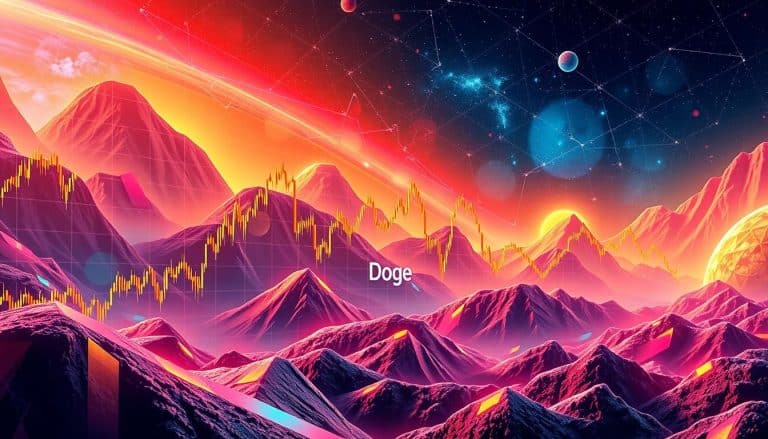Nft Valuation Explained
Non-fungible tokens (NFTs) are a type of digital asset that have become increasingly popular in recent years. NFTs are unique, and they can represent anything from digital art to gaming items to virtual real estate. As the popularity of NFTs continues to grow, questions about their value arise. This article explores the concept of NFT valuation and explains some of the factors that influence it, as well as how one might go about evaluating an NFT before investing in it. It also discusses potential risks associated with investing in this new asset class and provides an overview of different types of NFTs, security measures available for them, and tax implications investors should be aware of. Finally, this article will explore what may lie ahead for the future development of this rapidly evolving market.
What is an NFT?
An NFT (Non-Fungible Token) is a type of cryptographic asset that functions as a digital representation of tangible and intangible items on the blockchain. It has found its way into many applications, from crypto gaming to virtual auctions, providing users with ownership rights to digital assets. This technology is highly secure and immutable, allowing people to trade and transfer these assets without fear of fraud or tampering.
NFTs have revolutionized the world of digital collectibles by allowing for true ownership of these assets. It also allows for more accurate valuation due to their scarcity and uniqueness compared to other assets in the market. Understanding how NFT valuations work is key to making informed decisions when trading or investing in them.
Understanding NFT Valuation
NFTs are digital assets that are gaining popularity due to their unique properties and the ability to assign ownership rights on a blockchain. The primary factors driving NFT valuation are supply and demand, utility and scarcity, and quality of the asset itself. Supply is determined by the number of copies available on the market, demand is affected by how many people want to buy an NFT, utility is related to what an NFT can be used for, while scarcity relates to how rare a certain asset may be. Quality also affects an NFT’s value; it determines whether it will have any lasting worth or not.
Supply and demand
The supply and demand dynamics of NFTs are influential in determining their overall valuation. Crypto economics is an important factor that affects the market price of NFTs. As demand increases, liquidity markets for these digital assets also increase, resulting in higher prices. Conversely, when demand is low, prices decrease due to reduced liquidity. This dynamic creates a risk-reward balance that can be used to assess the current value of an individual NFT or a collection of them. Furthermore, scarcity plays an important role in driving up the prices as it enables investors and collectors to bid on limited editions or exclusive works of art which would otherwise be hard to find or acquire.
Utility and scarcity
Utility and scarcity are key drivers of NFT value, as they allow investors and collectors to bid on exclusive works of art and limited editions that can be hard to acquire. Token metrics such as market cap, liquidity, distribution models, transaction frequency, and other token metrics provide investors with the necessary information for making informed decisions about their investments. Additionally:
- NFTs offer a unique opportunity for asset owners to differentiate themselves from competitors since each item is exclusive;
- They also allow creators to maintain control over their work by providing access only when ownership changes hands;
- Finally, scarcity adds an additional layer of security which attracts potential buyers who want to invest in something rare.
Utility and scarcity play an important role in driving NFT value because they provide investors with assurance that their investment is secure and exclusive. The next step in understanding NFT valuation is looking at the quality of assets being exchanged.
Quality of assets
In assessing the desirability of NFTs, the quality of assets exchanged should not be overlooked; after all, a diamond is only as good as its cut. Quality of an asset can be measured in terms of authenticity verification. For instance, digital art pieces require authentication to ensure that they have been issued by the artist or their authorized representatives. Similarly, when it comes to platform selection for creating and trading NFTs, it is important to choose one that has a user-friendly interface and offers secure storage solutions. Additionally, platforms should also provide reliable support services for resolving disputes if any arise between buyers and sellers. All these elements contribute towards an asset’s overall quality which in turn affects its value in the market. In conclusion, proper evaluation of these factors is key to successfully determining the right value of an NFT.
Factors That Influence NFT Value
Given the increasing popularity of NFTs, it is essential to understand the various factors that impact their value. Certain crypto economics and DeFi tokens, for example, can affect the price or demand for a given NFT. On one hand, an increase in demand could lead to an appreciation in value as buyers compete to acquire a limited amount of assets. On the other hand, an NFT’s market capitalization may decline due to its specific characteristics such as lack of liquidity or poor storage infrastructure. Furthermore, transaction fees and network congestion can also play a role in constraining supply and driving up prices.
The crypto economy has become increasingly complex over time due to innovations such as decentralized exchanges and new consensus mechanisms which are constantly impacting the value of digital assets including NFTs. Consequently, understanding these trends is paramount when evaluating potential investments within this space; otherwise investors may be exposed to unexpected risks associated with investing in NFTs. Without proper risk management strategies in place, individuals may be subject to large losses which could have been avoided by simply gaining insight into how different economic forces interact with each other within the blockchain ecosystem. As such, it is important for investors to remain vigilant when assessing the potential return on investment associated with any given asset class before making any commitments towards purchasing said asset(s). Thus concluding our discussion on factors that influence NFT valuations; we will now move onto exploring ‘the risks of investing in nfts’.
The Risks of Investing in NFTs
Investing in NFTs can be a risky venture as there is currently limited regulatory oversight for the sector, and liquidity issues may arise. Regulations are still being established by governments around the world to provide more security for investors, but until then it is difficult to protect against potential losses. Furthermore, due to the lack of market depth and liquidity, it can be difficult to quickly unload an NFT if one needs quick access to funds. Additionally, since many NFTs are highly volatile assets with no intrinsic value backing them up, their prices can fluctuate drastically in a short period of time making them risky investments. In order to minimize these risks and increase the chances of success when investing in NFTs, it is important to understand how they are valued so that proper evaluations can be made.
How to Evaluate NFTs
Analyzing the potential of an NFT investment requires careful consideration in order to maximize success and reduce risk. Careful evaluation is needed to understand the fundamentals of the asset being acquired, such as its legal implications, market demand, and utility. It is important for investors to conduct a fundamental analysis before investing in an NFT in order to determine whether or not it will be a profitable venture. This includes researching the token’s purpose, comparing it with similar assets, reviewing any legal contracts associated with the asset, and assessing its utility within different markets. Additionally, understanding any legal ramifications of purchasing an NFT can help investors make better decisions when evaluating their options. With this knowledge in hand, investors can then confidently assess their potential investments and make informed decisions on how to move forward. To ensure a successful investment journey with NFTs, it is essential that investors have a thorough understanding of all factors related to their specific asset before making any decisions. Transitioning into buying these digital assets now requires further investigation into how best to proceed safely and securely.
How to Buy NFTs
Acquiring an NFT can be a complicated process, requiring careful consideration and research into the asset before purchase. Understanding the market and buying strategies are essential to making an informed decision on which NFTs to own. Establishing a budget, researching different platforms and payment options, familiarizing oneself with the laws related to purchasing digital assets, and understanding fees associated with trading are all important considerations when evaluating potential purchases.
When it comes to payment options, buyers should consider their existing cryptocurrency holdings as well as other options such as debit or credit cards; it is also important for buyers to understand the risks associated with each type of payment method. Additionally, depending on the platform used for acquiring an NFT, buyers may need to set up additional accounts or wallets in order to complete their transaction successfully. With thorough research and careful planning, potential buyers can ensure that they are entering into a successful purchase of an NFT. As such, transitioning into knowledge about different types of NFTs is critical in order prepare for purchasing these unique digital assets.
Different Types of NFTs
Non-fungible tokens (NFTs) are a type of digital asset that represent ownership over some kind of digital asset or item. NFTs are increasingly popular, with various types existing such as digital art, collectible cards, game assets and even digital real estate. These different types of NFTs enable users to own something unique and exclusive digitally, with the underlying blockchain technology allowing for secure transactions and proof of ownership.
Digital art
Digital art has emerged as a groundbreaking way to capture value and represent creative expression through the utilization of blockchain technology. NFT’s (non-fungible tokens) have provided digital artists with a platform to showcase their artwork, allowing them to reach new audiences and expand into luxury markets with unprecedented security that is offered by blockchain technology. This phenomenon has created an innovative approach to the art industry, allowing for increased liquidity and accessibility of digital art pieces.
The emergence of NFTs in the digital art market has opened up new possibilities for collectors, providing them access to a wide range of artwork from around the world at any given time. With secure authentication via blockchain technology, buyers can be assured that they are only purchasing authentic pieces from verified sellers. In addition, NFTs provide the opportunity for artists to issue limited edition works which adds another layer of collectibility and desirability to their work – further increasing its value on the secondary market. With these advantages, it is clear why digital art is becoming increasingly sought after in today’s luxury markets.
Collectible cards
Collectible cards have become an increasingly popular form of digital asset, with recent estimates indicating that the market for such cards is worth over $100 million. The digital collectibles come in a variety of forms, from traditional sports trading cards to fantasy-based collectibles. As with any valuable item, it is important to ensure the authenticity and condition of the card. This is accomplished through card grading services which certify a card’s authenticity and assign it a grade based on its physical condition. Digital authentication also plays an important role in verifying that the card has not been tampered with or compromised in any way. These measures are necessary to ensure that collectors obtain fair value for their investments and help maintain the integrity of the market as a whole. With these safeguards in place, collectors can confidently invest in digital collectibles knowing that they will receive fair compensation for their purchases. Transitioning into the subsequent section about ‘game assets’, these same standards of security apply when buying unique game items such as rare skins or characters which can also be bought and sold within virtual worlds and games.
Game assets
Game assets, such as rare skins or characters, have become increasingly sought after by gamers looking to distinguish themselves in digital worlds and games. With the emergence of gaming platforms that enable gamers to own their virtual assets, many have begun to see these assets as valuable investments. Not only do they allow users to express their individual style and identity within a game community, but owning certain items can also make players competitive when playing against others. From limited edition skins and characters, to legendary weapons and armor sets – the list of must-have items is ever-growing.
Owning virtual game assets has come with its own set of challenges. In order for them to be tradable or transferable across different gaming platforms, there needs to be a secure platform that enables asset ownership; one that protects users from fraudulence while preventing hackers from stealing digital goods. NFTs (non-fungible tokens) are therefore becoming increasingly popular due to their immutability and ability to securely store all kinds of digital property on the blockchain – paving the way for true asset ownership within the gaming industry. This transition into digital real estate further emphasizes how valuable these in-game collectibles can be in terms of both financial value as well as sentimental worth among avid gamers.
Digital real estate
The emergence of digital real estate within the gaming industry is rapidly changing the monetization landscape for gamers. This type of virtual asset has become an attractive investment opportunity for those looking to make a profit through buying and selling non-fungible tokens (NFTs). NFTs are cryptographically secure tokens that represent ownership of digital assets, such as artwork or game items. They can be bought and sold through virtual auctions facilitated by smart contracts and stored securely on the blockchain. This new form of digital real estate provides gamers with a way to monetize their gaming assets in a safe and secure manner, making them more valuable than ever before. With these advancements, it is important to understand how NFTs are valued so that investors can accurately assess their potential returns when investing in this type of asset.
NFT Security
Investigating the security of NFTs is a critical component in understanding their value. As with any asset, investors need to consider how susceptible it is to various external factors before deciding how much to invest. With NFTs, two of the main issues are inflationary effects and liquidity issues. Inflationary effects refer to the amount by which the value of an asset changes over time due to economic circumstances; this can significantly affect investments in NFTs as they are normally held for long periods of time. Liquidity issues refer to difficulties when trading or exchanging an asset; this could be problematic for those who wish to quickly exit their position with an NFT. To mitigate these risks, it is important that potential investors thoroughly research and understand all relevant information related to security before investing in NFTs. Consequently, this will help them make more informed decisions about their investments and ensure they have greater control over their financial future. Moving forward, it will be important to consider the tax implications of investing in NFTs as well.
Tax Implications of Investing in NFTs
Considering the potential for significant financial gain, it is essential to be aware of the tax implications associated with investing in NFTs. From tokenized ownership to liquidity issues, investors must consider these factors when making decisions about taxation related to their investment:
- Tokenized Ownership: NFTs are subject to various taxes and regulations depending on their jurisdiction and purpose. For example, if an investor holds a tokenized asset as a capital gain or loss, they may be subject to different tax treatments than if they held the same asset in physical form.
- Liquidity Issues: Additionally, NFTs can present liquidity issues that could affect how much of an investor’s profits are taxable. If an investor is unable to quickly convert their tokens into fiat currency, they may end up paying a higher level of taxes due to the illiquid nature of their assets.
Understanding these tax implications can help investors make informed decisions when investing in NFTs and ensure that they are not overpaying or underpaying any taxes on their investments. With this knowledge in hand, investors can move forward with confidence into exploring the future of NFTs.
The Future of NFTs
In the past few years, the Non-Fungible Token (NFT) market has grown exponentially and is showing no signs of slowing down. This begs the question: what does the future hold for NFTs? It appears that there are a number of factors that will have a significant impact on how these digital assets will be valued in the coming years. One such factor is the social media impact, as the rise of platforms such as Twitter and TikTok can play a big role in increasing demand for certain types of NFTs. Additionally, analyzing market trends can help to predict changes in value over time. For example, if an artist’s popularity increases over time, then this could result in an increase in their NFTs’ values. On the other hand, if there are economic downturns or technological advancements that make traditional artwork more accessible and easier to produce, then this could lead to a decrease in value for some NFTs. Ultimately, it remains difficult to predict exactly how NFTs will be valued in the future; however, understanding these various factors may provide some insight into potential changes and opportunities for investors moving forward.
Frequently Asked Questions
What is the best way to store NFTs?
The best way to store NFTs is by using online or token wallets. An interesting statistic is that more than one million NFTs have been created since 2017, with the number increasing exponentially each year. Online and token wallets provide secure storage for these digital assets, while also offering users control over their private keys and ownership of their tokens. These wallets are essential for anyone looking to own and securely store NFTs.
How can I protect my NFT investments?
Investors in NFTs should employ risk management strategies to protect their investments. Asset security measures, such as utilizing secure digital wallets and storage systems, can help reduce the risk of loss or theft. Additionally, monitoring market trends and diversifying portfolios are key elements of a comprehensive protection plan.
How can I make money with NFTs?
Exploring token economics and liquidity risk can potentially unlock potential for making money with NFTs. Analyzing market trends, understanding supply/demand dynamics, and researching blockchain technology are key to success.
What is the difference between NFTs and cryptocurrency?
NFTs and cryptocurrency both involve digital trading; however, the difference lies in their respective levels of digital scarcity. NFTs are non-fungible tokens, meaning they are unique and cannot be replaced with an identical clone or token. Cryptocurrency, on the other hand, is fungible as it can be exchanged for identical units of the same currency.
Are there any legal considerations I should be aware of when investing in NFTs?
Recent reports estimate that the NFT market is worth up to $250 million, representing a significant opportunity for investors. However, legal considerations such as privacy rights and tax implications must be taken into account before making any investments. It is important to understand your rights and obligations when investing in NFTs in order to protect yourself from potential risks.





 Bitcoin
Bitcoin  Ethereum
Ethereum  Tether
Tether  XRP
XRP  USDC
USDC  Solana
Solana  TRON
TRON  Lido Staked Ether
Lido Staked Ether  Figure Heloc
Figure Heloc  Dogecoin
Dogecoin  WhiteBIT Coin
WhiteBIT Coin  Cardano
Cardano  USDS
USDS  Bitcoin Cash
Bitcoin Cash  Wrapped stETH
Wrapped stETH  LEO Token
LEO Token  Hyperliquid
Hyperliquid  Wrapped Bitcoin
Wrapped Bitcoin  Monero
Monero  Binance Bridged USDT (BNB Smart Chain)
Binance Bridged USDT (BNB Smart Chain)  Chainlink
Chainlink  Canton
Canton  Ethena USDe
Ethena USDe  Stellar
Stellar  Wrapped eETH
Wrapped eETH  USD1
USD1  Rain
Rain  sUSDS
sUSDS  Hedera
Hedera  PayPal USD
PayPal USD  Dai
Dai  Coinbase Wrapped BTC
Coinbase Wrapped BTC  Litecoin
Litecoin  Avalanche
Avalanche  Zcash
Zcash  WETH
WETH  Sui
Sui  Shiba Inu
Shiba Inu  Cronos
Cronos  USDT0
USDT0  Tether Gold
Tether Gold  Toncoin
Toncoin  World Liberty Financial
World Liberty Financial  MemeCore
MemeCore  Polkadot
Polkadot  PAX Gold
PAX Gold  Uniswap
Uniswap  Ethena Staked USDe
Ethena Staked USDe